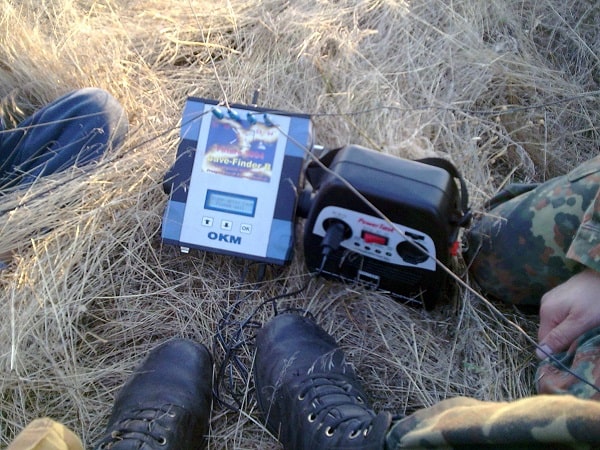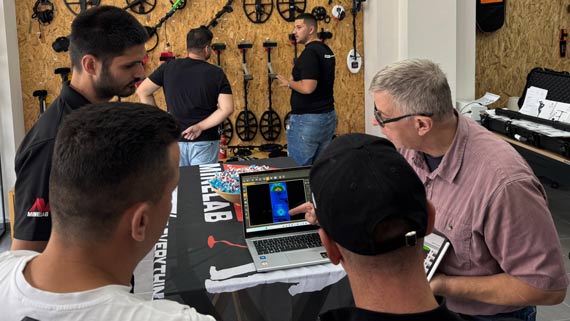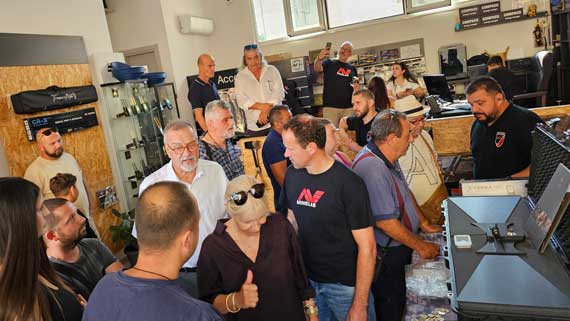Cavefinder (2004)
Geoelectric methods are used to explore groundwater resources. These methods are also applied in engineering geology and archeological investigations for the detection of caves, voids, caverns, fractured zones and metallic objects.
Cavefinder is a geoelectrical detecting instrument that allows easy and fast localization of underground structures like cavities, caves and arches. The detection of tombs, grave chambers, tunnels and hidden treasure chambers is done automatically after starting the measuring process on the control unit. Due to the integrated data analysis, the measurement result are shown immediately on the display of the Cavefinder.
Cavefinder is made to detect geological nonmetallic ground anomalies like for example:
- tombs, burial sites and grave chambers
- caves and tunnels
- non-metallic targets like containers and barrels
Application of Cavefinder
The Cavefinder comprises four conductive electrodes which are placed into the ground in a square area. Due to the length of each electrode cable of 20 meters, which is connected to the measuring instrument, the scan area is defined to a maximum of 800 square meters in one single measurement.

During the measurement with the cave detector Cavefinder, several resistance measurements are executed, to finally draw conclusions to existing voids. The analysis of the measured results can be easily done on the field after a short measuring time and the scans can be repeated as often as necessary. The Cavefinder includes the following functions:
- Automatic measurement with simple “Yes/No” evaluation
- Graphical control output to a computer (only with version B)
Maximum operation time thanks to Power Tank
For maximum utilization of the operating time of the Cavefinder to locate hidden voids it is delivered with a high performing external power supply, the Power Tank. Thanks to its light weight, the device can be utilized in nearly all terrains to detect cavities.

Cavefinder Versions
The Cavefinder is available as Version A with simple display analysis or as Version B with additional bluetooth data transfer and graphical analysis of the measured results on a computer via Visualizer 3D software.


